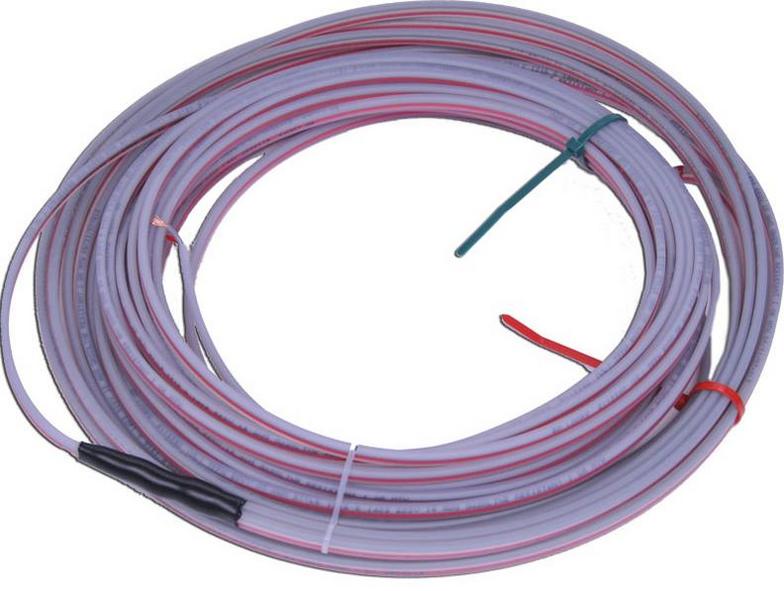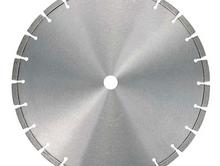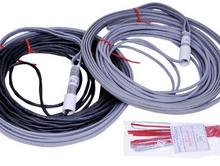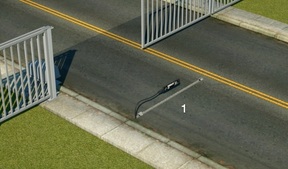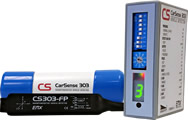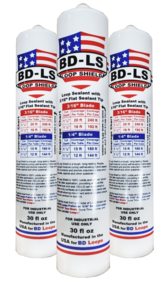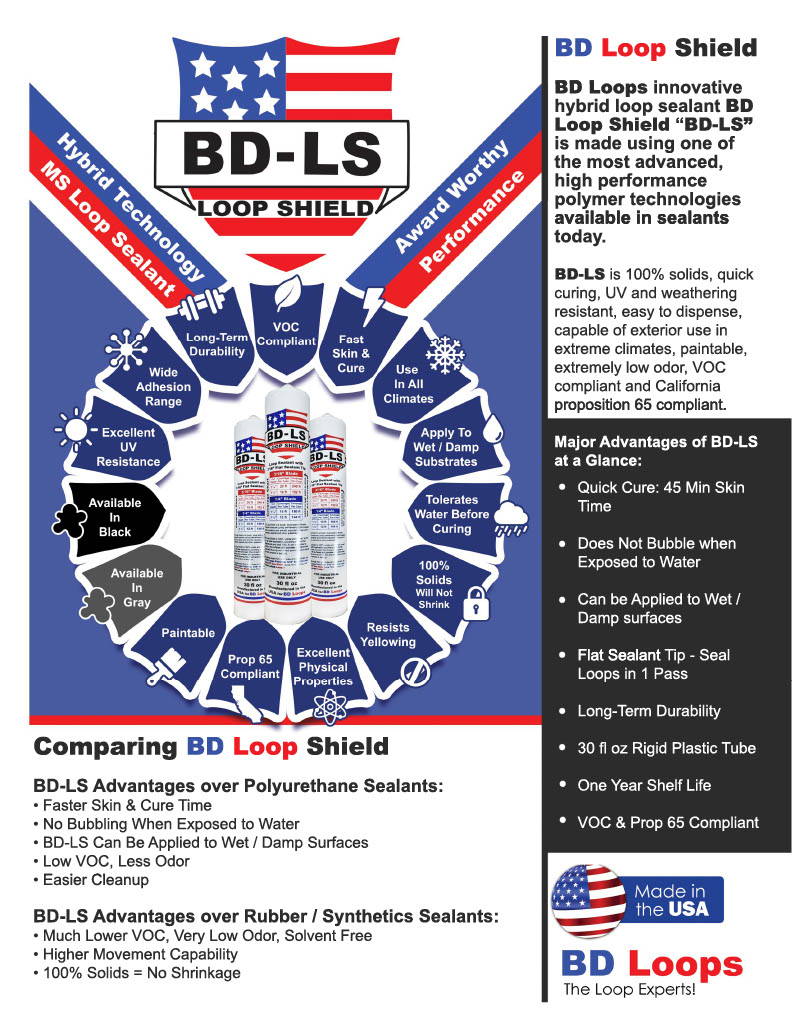Vehicle Detection Loops
Vehicle Inductance Loops
Over 34 standard sizes; 200 of each model always in stock. Custom loop dimensions or lead-in length are always available and can be shipped same day.
Loop is packaged as a kit. Everything you need is inside the package and will save 15-30min in installation time per loop.
For more information, please call 520-780-9751 or email [email protected]
Saw Cut Loops
Preformed Saw-Cut Inductance Loops
Direct Burial Loops
Preformed Direct Burial Inductance Loops
3/16" Pro Diamond Blades
SAW CUT LOOP TIPS:
To install a saw-cut loop, a groove must be cut. Choosing the correct size saw-blade is important to insure there is enough space for sealant to properly flow when applied. A 1/8 blade cuts a groove too narrow for thick sealant to properly flow and encapsulate the saw-cut wires. A 3/16 blade or larger has enough space for sealant to flow. BD Loops recommends the use of a 3/16 saw blade, 3/16 blades cost less, put less bog on your saw-cut machine, and require 25% less loop sealant to fill than a groove. If the sealant doesn't flow properly air pockets will form within the saw-cut groove, a leading cause in loop failures.
There are a lot of methods used to clean and dry a saw-cut groove, some better than others. Cleaning and drying a groove of water and debris is very important if you want to install a loop properly according to industry standards. If a loop is installed in a groove that is wet and filled with debris the wire has a high chance of becoming nicked, and loop sealant will not harden properly or air bubbles may form. The use of a tool that centralizes air flow like the BD Loops groove cleaning air wand or similar tool is the best way to clean out and quickly dry a saw-cut groove Sucking up water and debris with a shop vacuum or using a leaf blower to dry the groove takes more time, but is more efficient that letting the sun air dry the groove.
Once the loop is in place a loop sealant should be applied. The use of a DOT approved loop sealant like Chemque, Bondo, or Ruscoe brand loop sealant will save a lot of time in installation and prevent early replacement. These brands have a low viscosity, don't crack over time, and have tools designed for them to make the installation process much easier. Tools like sealant tips, if the proper tip is used the groove can be sealed from the bottom up allowing a seal with just one pass. Normal methods require multiple passes because time must be given for the thick sealant to flow around the wires. (See Figure 4) BD Loops found that 15-20 minutes per loop can be saved in the sealant application step with the use of a properly sized sealant tip. Loop sealant is often applied with the installer on their hands and knees, save your knees and back by using a rolling work seat Once the loop is in place a loop sealant should be applied. The use of loop sealant will save a lot of time in installation and prevent early replacement. These brands have a low viscosity, don't crack over time, and have tools designed for them to make the installation process much easier. Tools like sealant tips, if the proper tip is used the groove can be sealed from the bottom up allowing a seal with just one pass. Normal methods require multiple passes because time must be given for the thick sealant to flow around the wires. BD Loops found that 15-20 minutes per loop can be saved in the sealant application step with the use of a properly sized sealant tip. Loop sealant is often applied with the installer on their hands and knees, save your knees and back by using a rolling work seat
Loop sealants take time to harden you can leave the job quicker and looking nicer by always having some different colored sand on your truck. Colored sand is inexpensive and commonly found at hobby stores. After the groove is filled with sealant sprinkle some sand on top choosing a color that matches the surface material. This will allow the lane to be opened earlier, before the sealant has fully hardened. Applying sand is also a good trick if the only color of loop sealant available is black when installing into a light colored surface such as concrete. By mixing both white and brown sand the color of concrete can be mimicked and better conceal the loop tattoo.oop sealants take time to harden you can leave the job quicker and looking nicer by always having some different colored sand on your truck. Colored sand is inexpensive and commonly found at hobby stores. After the groove is filled with sealant sprinkle some sand on top choosing a color that matches the surface material. This will allow the lane to be opened earlier, before the sealant has fully hardened.
How a Vehicle Detection Loop Works with Vehicle Access Control Gates:
The preformed saw-cut loop or direct burial loop is installed under the asphalt or concrete in the traffic lane. The loop is a continuous run of wire that enters and exits from the same point. The two ends of the loop wire are connected to the loop lead in wire, which in turn connects to the vehicle detector, which plugs in to the controller board inside of the gate operator housing. The detector powers the loop causing a magnetic field in the loop area. The loop resonates at a constant frequency that the detector monitors. A base frequency is established when there is no vehicle over the loop. When a large metal object, such as a vehicle, moves over the loop, the resonating frequency increases. This increase in frequency is sensed and, depending on the design of the detector, forces a normally open relay to close. The relay will remain closed until the vehicle leaves the loop and the frequency returns to the base level. The relay triggers the proximity card reader or other like access control device to open and close the barrier gate arm operator.
Vehicle detection loops used with inductive-loop traffic detectors can detect vehicles. Loops are used to stop or reverse a moving gate, to allow free exit from or entrance to a site, or as an "arming loop" to allow entrance.
(520)780-9751
Call Christine for your amazingly low price on detection loops today.
Get the Loops you need fast! Place order before 3 pm and it ships same day!
We Ship to Alabama · Alaska · Arizona · Arkansas · California · Colorado · Connecticut · Delaware · Florida · Georgia · Hawaii · Idaho · Illinois · Indiana · Iowa · Kansas · Kentucky · Louisiana · Maine · Maryland · Massachusetts · Michigan · Minnesota · Mississippi · Missouri · Montana · Nebraska · Nevada · New Hampshire · New Jersey · New Mexico · New York · North Carolina · North Dakota · Ohio · Oklahoma · Oregon · Pennsylvania · Rhode Island · South Carolina · South Dakota · Tennessee · Texas · Utah · Vermont · Virginia · Washington · West Virginia · Wisconsin · Wyoming
Loop Sealant
Ask about loop detectors too!
Polyurethane Saw-Cut Loop Sealant with Flat 3/16" Sealant Tip
The CS303 makes installation & vehicle detection
as easy as 1,2,3!
One saw cut to install saves time and money
Two ways to detect vehicles - stopped or moving
Three axes to ignore cross traffic
Flexible, Cost Effective Installation
Simple loop-less design for easy above or below ground installations
Compatible with a wide variety of operators
EMX Exclusive Features
Distinguish between stopped and moving vehicles with Detect-on-Stop™
Experience fast and reliable sensitivity adjustments with ULTRAMETER™ display
Magnetoresistive Technology
360 degrees three-dimensional sensing detects changes in magnetic field
Eliminate undesired detection with independent control over the X,Y and Z axis
The CarSense 303 vehicle detector features advanced 3-axis, magnetoresistive sensing technology that responds to changes in the Earth's magnetic field caused by ferrous objects. Three sensing elements provide measurements in the X, Y and Z axes to improve detection sensitivity when used in either above or below ground installations.
The CS303 is equipped with our new DETECT-ON-STOP™ or (DOS®) feature, which allows detection only when a vehicle has come to a complete stop. This exclusive feature is unique to EMX and is a major advantage if you want to ignore cross traffic in tight spaces.
The detector's compact, loop-less design reduces installation costs when compared to traditional inductive loop technology.
Benefits include:Magnetoresistive Vehicle Detector CARSENSE 303
Easy installation above or below ground
Ignores cross traffic in tight spaces with
DETECT-ON-STOP™ feature
Quick setup with the ULTRAMETER™
sensitivity display
Cost effective
Single cut installation with flat pack model
Features
Three-dimensional presence detection of vehicles
Select X,Y,Z axis independently
Stand-alone sensor
Sensor stores ambient background and settings in non-volatile memory
Remote control module for programming and additional relay contact output
ULTRAMETER™ displays optimum sensitivity setting/crosstalk interference
DETECT-ON-STOP™ allows detection only when a vehicle has come to a complete stop
Loop Sealant

